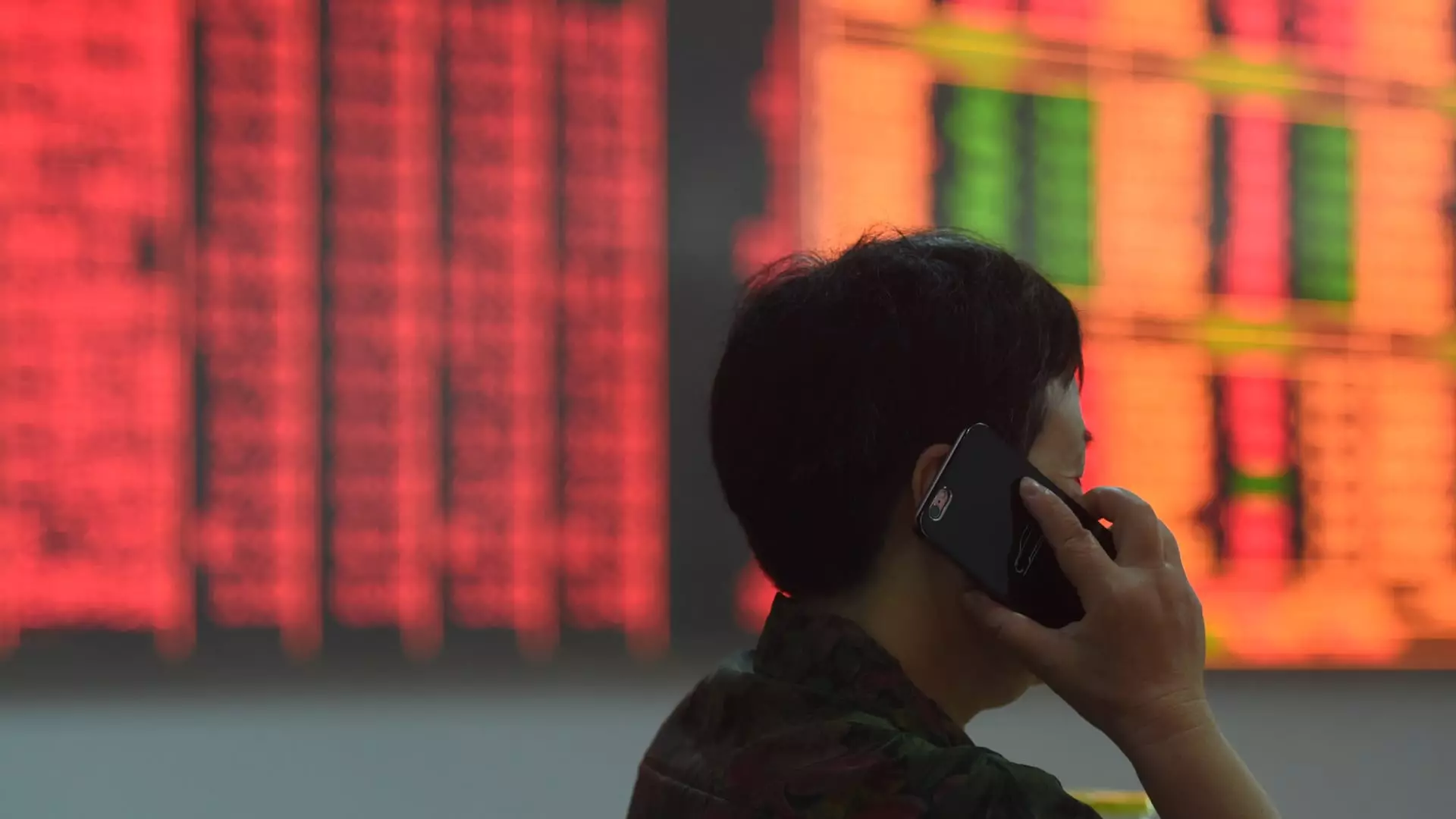In recent days, China’s economic landscape has been a focal point for analysts and investors alike, particularly following a critical meeting of the Politburo led by President Xi Jinping. While these signals have stirred market sentiment, they have barely scratched the surface of the deeper systemic issues plaguing the nation’s economy. Observations suggest that the rally in the Shanghai Composite, which reached a three-month high, is more a reaction to political signals than a resolution of the underlying economic malaise.
The overarching takeaway from this high-level gathering appears to be the acknowledgment of the challenges facing the economy, particularly the struggling real estate sector that has now entered its fourth consecutive year of contraction. Historical evidence suggests that sentiment alone is insufficient for sustainable recovery; robust, well-structured policies must follow to truly address the multifaceted issues at play.
The Continuing Struggles of the Real Estate Sector
The real estate slump continues to weigh heavily on growth in the world’s second-largest economy. With retail sales limping along at just over 2% and industrial profits stagnating over the first eight months of the year, the statistics tell a story of caution. Exports, while remaining a bright spot, cannot single-handedly revive a faltering economy. Analysts like Ting Lu from Nomura emphasize the critical need for stabilization in the property market as a precursor to broader economic healing.
While potential stimulus measures have been discussed, past experiences with piecemeal interventions raise concerns about their effectiveness. Historically, hastily designed stimulus packages, even if they appear attractive, often yield slow results or fall short of expectations. This has led some experts to argue for a more grounded approach, placing increased emphasis on detailed policy design that aligns with the actual needs of the economy.
This week saw the People’s Bank of China announce cuts to major interest rates and extend plans for reducing rates on existing mortgages. Despite these moves, skepticism remains. Investment analysts, including Paul Christopher from Wells Fargo Investment Institute, highlight that lower interest rates alone are insufficient to alleviate consumer fears regarding borrowing. Such sentiments underscore a broader lack of confidence rooted in recent years of aggressive regulatory crackdowns, which have left both businesses and consumers wary of government policies.
The reluctance to provide substantial fiscal stimulus also raises questions about the government’s willingness to enact measures that could restore confidence. As some investment institutions express their doubts, a growing number of investors have begun to reposition their portfolios away from Chinese equities, highlighting a critical need for policymakers to implement robust strategies that can genuinely revitalize economic sentiment.
A historical view reveals that financial stability is essential for sustainable growth, and current sentiment suggests that China may still be navigating turbulent waters. In September, a survey by the China Beige Book indicated a decline in corporate borrowing, even amidst historically low rates. This paradox raises questions about the effectiveness of cross-influences from global monetary policy shifts, such as those initiated by the U.S. Federal Reserve.
Some market observers, including Shehzad Qazi from the China Beige Book, posited that while the stock market rally could continue into the final months of the year, it must translate into long-term economic recovery rather than a mere temporary boost. The specter of prior declines in property wealth weighs heavily, overshadowing any temporary relief found in financial markets.
Investor enthusiasm seems to be returning, with significant gains reported in indexes like the CSI 300. Positive remarks from prominent figures like hedge fund manager David Tepper have further fueled this sentiment. Yet, these optimistic market reactions are also intertwined with caution; successful navigation of the current climate will depend on the Chinese government’s willingness to embrace structural reforms and commit to policy actions that address the root causes of economic stagnation.
As conversations around the future of the Chinese capital markets evolve, it is essential to keep an eye on the concrete actions that follow high-level announcements. Many analysts argue that the restructuring of these markets is crucial not only for investor confidence but also for creating a sustainable growth pathway for the Chinese economy.
China’s economic future will likely hinge upon its ability to translate positive signals into tangible outcomes. The global economic environment continues to have ramifications for domestic sentiment, but the real work lies in devising coherent policies that will foster stability, restore confidence, and revitalize growth.

